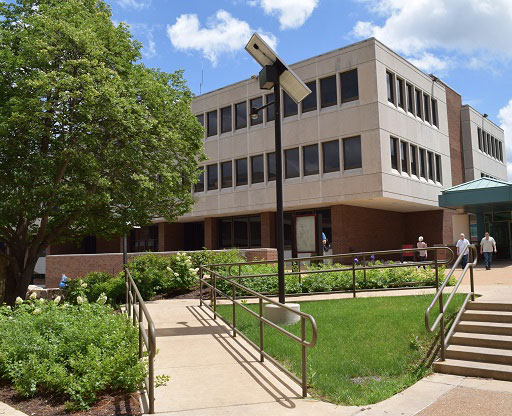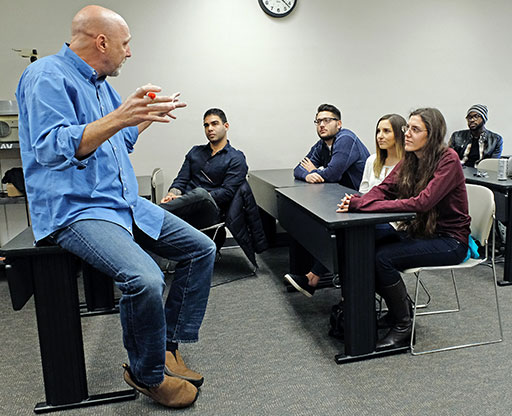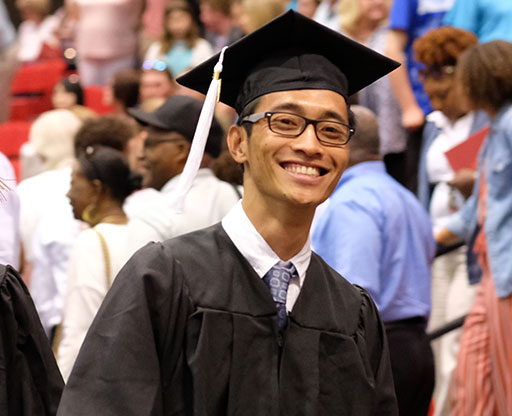Immerse yourself in the past to illuminate the present with UMSL’s bachelor’s degree in history
The University of Missouri–St. Louis’ Bachelor of Arts in History is a rich exploration of ancient and modern societies, providing insights into cultures near and far while unraveling the complexities of our global landscape.
Our versatile and marketable history degree program goes beyond memorizing dates and events, honing sought-after skills for diverse career paths. As a history major, you’ll learn to analyze, synthesize and interpret historical data to unlock the connections between the past and present.
Designed for the curious and analytical, our history bachelor’s degree empowers you to navigate human behavior and societal evolution, develop research methodologies, craft persuasive narratives and apply critical thinking to complex evidence.
Our BA in History is available on campus or online, with several concentrations to align with your unique interests. We also offer an emphasis in Public History and Museums in the Digital Age.
Accelerated Dual History Degree Program
UMSL’s accelerated history program offers a streamlined path to earning both bachelor’s and master’s degrees in history. This innovative, dual-degree program requires fewer credit hours compared to completing each degree independently, saving you time and money. With our accelerated history degree program, you’ll advance your historical knowledge and research skills, giving you a competitive edge as you enter the job market.
Program type:
Major, BA
Format:
On-Campus, 100% Online
Take the next step
Request more information below:

Why earn your bachelor’s degree in history at UMSL?
As an UMSL history major, you’ll explore how history shapes our world through engaging coursework, mentorship and research. In addition to competitive tuition, our history degree offers:
- Focused areas of study: Choose from concentrations in Archaeology and the Ancient World; Community, Diversity and Social Justice; Politics and the State; or Global Perspectives. An emphasis in Public History and Museums in the Digital Age is also available, along with a wide selection of relevant minors.
- A supportive environment: Personalized faculty guidance, state-of-the-art facilities (Digital Humanities Lab, premier libraries and archives), a strong alumni network and St. Louis’ many museums enrich your UMSL experience.
- Experiential learning: St. Louis’ thriving cultural scene provides internship opportunities in libraries, museums, archives, parks and archaeological sites. Study-abroad options are also available.
What can you do with a degree in history?
UMSL’s Bachelor of Arts in History equips graduates with the knowledge, skills and experiences for a broad array of career paths. Our bachelor’s degree in history also provides a solid foundation for pursuing advanced study in areas such as history, museum studies, library and archives information systems, business and law.
While an interest in local history has created job opportunities in museum, archival and preservation work for history majors, professionals across various sectors such as business, education, law, banking, libraries and numerous other fields recognize the relevance of a history degree to their careers.
UMSL’s History Department partners with institutions across St. Louis region to provide history majors with valuable research and internship experiences. This includes opportunities at the Missouri History Museum, Bellefontaine Cemetery, St. Louis Science Center, the State Historical Society of Missouri, the Griot Museum, First Missouri State Capitol State Historic Site (St. Charles), the National Park Service and the National Blues Museum.
Our history bachelor’s degree graduates often find jobs at these institutions and other museums and historical agencies, such as the Missouri Historical Society, Washington University Libraries Special Collections, the Mercantile Library of St. Louis and the Saint Louis Art Museum. However, our alumni are also successful professionals in business, sales, management, education and many other fields.
Employment of museum curators is projected to grow up to 10% by 2032, with a median annual salary of $62,600 in Missouri, according to wage and employment data from the U.S. Bureau of Labor Statistics.
62,600
10
Career Opportunities
- Author/Writer
- Communications
- Consulting
- Editing
- Education/Teaching/Training
- Journalism
- Museum Curator/Conservator
- Public Policy
- Research Analyst
Plan of study
Review Full Degree Requirements Review Sample Four-Year Plan
All majors must meet the general education requirements of the university in addition to completing degree-specific curriculum requirements.
Non-Missouri Residents: Prospective students are responsible for reviewing the UMSL state authorizations page to see if this program is offered in their state throughout their program and to review the licensure or certification requirements for the state in which they reside.
Student organizations
Make new friends and learn new skills by joining one of our Recognized Student Organizations. Here are several opportunities you may be interested in as a history major:
- Phi Alpha Theta - National History Honor Society
- Student Government Association
- Students of the University of Missouri
Honors College
The UMSL Honors College is a certificate program that can be paired with any major without adding extra classes or extending time to graduate. Classes in the Honors College are seminar-style, meaning that they are based in reading, writing, discussion, and critical thinking. This unique class format fosters an intellectual climate centered around democracy, civility and academic excellence.
Undergraduate research
We encourage and support students as they engage in exciting activities in and outside of the classroom that enrich their academic and professional understanding of their chosen area of study. All majors are encouraged to participate in Undergraduate Research and Scholarship to produce discipline-specific intellectual or creative innovations to their field.








